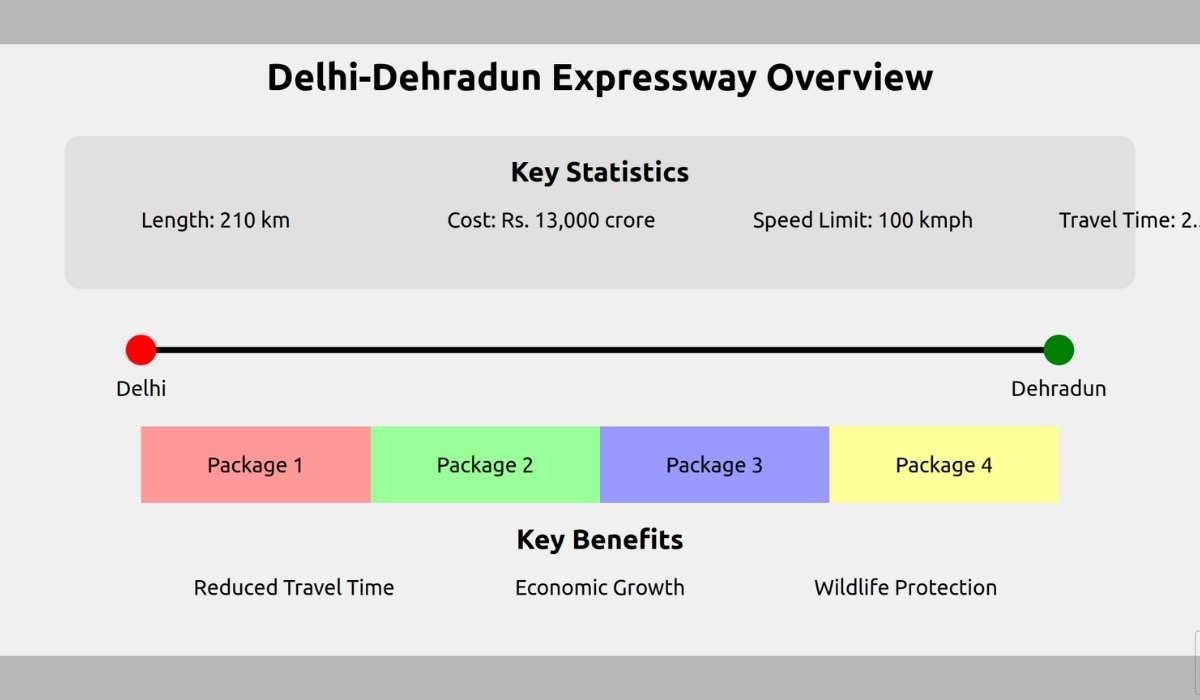Buying your first home is an exciting milestone, but also a major financial commitment. As a first-time buyer in India, understanding your financing options and securing an affordable home loan is crucial. Let’s take a deeper look at navigating the world of home loans for your maiden property purchase.
The Importance of Home Loans for First-Time Buyers
The Importance of Home Loans for First-Time Buyers Unless you have substantial savings, most first-time home buyers in India require a home loan to finance their purchase. According to HDFC, over 80% of Indian home buyers utilize some form of financing(1). With land and property prices continuing to rise, taking out a loan has become a necessity to afford the large upfront investment.
Home loans not only allow you to buy now and pay later, but also offer tax benefits on the interest paid. This makes taking out a home loan one of the smartest financial decisions for first-time buyers looking to get on the property ladder.
Types of Home Loans Available in India
Types of Home Loans Available in India When applying for a home loan in India, you’ll encounter various options to choose from:
- Home Loans from Banks Most major banks like SBI, ICICI, HDFC, etc. offer home loan products tailored to different buyer segments like salaried, self-employed or NRI customers. Interest rates and eligibility criteria vary across public and private sector banks.
- Home Loans from Housing Finance Companies Besides banks, large housing finance institutions like LIC Housing Finance, HDFC, PNB Housing, etc. are dedicated home loan providers with competitive interest rates and specialized offerings for new buyers.
- Public Sector Schemes Government-backed options like the Credit Linked Subsidy Scheme under PMAY provide subsidized home loans to economically weaker sections and low-income buyers, making homes more affordable.
When evaluating lenders, Aditya Mishra, founder and CEO of SwitchMe, a home loans platform, advises, “Compare interest rates across multiple banks and HFCs based on your financial profile. But also assess factors like fees, processing time, customer service, flexibility on transferring the loan later, and prepayment charges.”
Eligibility Criteria for Home Loans
Eligibility Criteria for Home Loans While requirements differ by bank, common eligibility factors for salaried and self-employed first-time buyers include:
Unlock Your Dream Home Today!
Get personalized real estate insights delivered straight to your inbox.
- Age between 23-62 years
- Minimum 3 years of work experience/business operations
- Steady income sources and credit score over 650
- Total loan liabilities less than 50-60% of net income
- Property located in approved city/area by the bank
Specific income criteria, loan-to-value ratio limits, and documentation requirements like IT returns, bank statements, etc. will be evaluated.
Loan Amount and Tenor Calculations
Loan Amount and Tenor Calculations Most Indian banks extend home loans of up to 80-85% of the property’s value for first-time buyers. The remaining 15-20% down payment needs to come from your savings or other sources.
Typical home loan tenures range from 15 to 30 years. The loan amount you qualify for depends on factors like:
- Your monthly income and existing debts
- Interest rate and tenure chosen
- Property cost and type (ready-to-move-in, under-construction etc.)
- City/location where the property is situated
Most banks use their own eligibility multipliers or Home Loan EMI to Income ratio formulas to determine the maximum loan amount to sanction.
HDFC , for instance, uses an EligibilityCalc with set multipliers like 63x monthly income for loans till Rs60 lakh and 45-50x for higher loan amounts.(3) An online home loan EMI calculator can help you plan your monthly obligations.
Other Fees and Charges Apart from the principal loan amount and interest, factor in charges like:
- Processing fees (0.5-1% of loan amount)
- Stamp duty and registration charges
- Technical/legal fees for property valuation or documentation
- GST and service taxes on processing fees
- Pre-EMI interest from disbursement until first EMI
Tips for Securing the Right Home Loan as a First-Time Buyer
While buying your first home is laden with many upfront costs, securing the right financing through a suitable loan product tailored for your needs as a new buyer is key. Do your research to identify lenders offering attractive interest rates, flexible repayment terms, and a hassle-free experience when applying as a first-time borrower.
Affordable Home Loans for First-Time Buyers in India: FAQs
Why are home loans important for first-time homebuyers in India?
Most first-time homebuyers in India require a home loan to finance their property purchase due to rising land and property prices. Home loans allow buyers to purchase now and pay later while also offering tax benefits on the interest paid, making them a smart financial decision.
What types of home loans are available for first-time buyers in India?
Common options include home loans from banks, housing finance companies, and public sector schemes like the Credit Linked Subsidy Scheme under PMAY for economically weaker sections and low-income buyers.
What are the eligibility criteria for first-time homebuyers to get a home loan?
Key criteria include age between 23-62 years, minimum 3 years of work experience/business operations, steady income sources, credit score over 650, total loan liabilities less than 50-60% of net income, and property located in an approved area by the bank.
How is the maximum home loan amount determined for first-time buyers?
Most Indian banks extend home loans up to 80-85% of the property’s value for first-time buyers. The loan amount depends on factors like your monthly income, existing debts, interest rate, tenure, property cost and type, and location.
What is the typical home loan tenure for first-time buyers?
Home loan tenures for first-time buyers typically range from 15 to 30 years. Lenders use eligibility multipliers or Home Loan EMI to Income ratio formulas to determine the maximum loan amount and tenure.
What additional fees and charges should first-time homebuyers expect?
Apart from the principal loan amount and interest, expect to pay processing fees (0.5-1% of loan amount), stamp duty and registration charges, technical/legal fees, GST and service taxes, and pre-EMI interest from disbursement until the first EMI.
How can first-time buyers find the right home loan for their needs?
Compare interest rates across multiple banks and housing finance companies based on your financial profile. Also, assess factors like fees, processing time, customer service, flexibility on transferring the loan later, and prepayment charges.
Are there any special home loan schemes for first-time buyers in India?
Yes, some lenders offer special home loan products tailored for first-time buyers, such as lower interest rates, flexible repayment options, or reduced processing fees. Check with various lenders for their specific offerings.
Most first-time homebuyers in India require a home loan to finance their property purchase due to rising land and property prices. Home loans allow buyers to purchase now and pay later while also offering tax benefits on the interest paid, making them a smart financial decision.
Common options include home loans from banks, housing finance companies, and public sector schemes like the Credit Linked Subsidy Scheme under PMAY for economically weaker sections and low-income buyers.
Key criteria include age between 23-62 years, minimum 3 years of work experience/business operations, steady income sources, credit score over 650, total loan liabilities less than 50-60% of net income, and property located in an approved area by the bank.
Most Indian banks extend home loans up to 80-85% of the property's value for first-time buyers. The loan amount depends on factors like your monthly income, existing debts, interest rate, tenure, property cost and type, and location.
Home loan tenures for first-time buyers typically range from 15 to 30 years. Lenders use eligibility multipliers or Home Loan EMI to Income ratio formulas to determine the maximum loan amount and tenure.
Apart from the principal loan amount and interest, expect to pay processing fees (0.5-1% of loan amount), stamp duty and registration charges, technical/legal fees, GST and service taxes, and pre-EMI interest from disbursement until the first EMI.
Compare interest rates across multiple banks and housing finance companies based on your financial profile. Also, assess factors like fees, processing time, customer service, flexibility on transferring the loan later, and prepayment charges.
Yes, some lenders offer special home loan products tailored for first-time buyers, such as lower interest rates, flexible repayment options, or reduced processing fees. Check with various lenders for their specific offerings.
Home loans provide tax benefits on the interest paid, which can significantly reduce the overall cost of borrowing and enhance affordability for first-time buyers.
Housing finance companies offer competitive interest rates and specialized offerings for new buyers, providing an alternative to traditional banks for securing home loans.
Most first-time homebuyers in India require a home loan to finance their property purchase due to rising land and property prices. Home loans allow buyers to purchase now and pay later while also offering tax benefits on the interest paid, making them a smart financial decision.
Common options include home loans from banks, housing finance companies, and public sector schemes like the Credit Linked Subsidy Scheme under PMAY for economically weaker sections and low-income buyers.
Key criteria include age between 23-62 years, minimum 3 years of work experience/business operations, steady income sources, credit score over 650, total loan liabilities less than 50-60% of net income, and property located in an approved area by the bank.
Most Indian banks extend home loans up to 80-85% of the property's value for first-time buyers. The loan amount depends on factors like your monthly income, existing debts, interest rate, tenure, property cost and type, and location.
Home loan tenures for first-time buyers typically range from 15 to 30 years. Lenders use eligibility multipliers or Home Loan EMI to Income ratio formulas to determine the maximum loan amount and tenure.
Apart from the principal loan amount and interest, expect to pay processing fees (0.5-1% of loan amount), stamp duty and registration charges, technical/legal fees, GST and service taxes, and pre-EMI interest from disbursement until the first EMI.
Compare interest rates across multiple banks and housing finance companies based on your financial profile. Also, assess factors like fees, processing time, customer service, flexibility on transferring the loan later, and prepayment charges.
Yes, some lenders offer special home loan products tailored for first-time buyers, such as lower interest rates, flexible repayment options, or reduced processing fees. Check with various lenders for their specific offerings.
When comparing home loan options, consider interest rates, processing fees, customer service, loan transfer flexibility, prepayment options, and overall repayment terms offered by different lenders.
Home loan borrowers can avail tax benefits on the interest paid under Section 24(b) and principal repayment under Section 80C of the Income Tax Act, making home loans a financially smart choice.
Most first-time homebuyers in India require a home loan to finance their property purchase due to rising land and property prices. Home loans allow buyers to purchase now and pay later while also offering tax benefits on the interest paid, making them a smart financial decision.
Common options include home loans from banks, housing finance companies, and public sector schemes like the Credit Linked Subsidy Scheme under PMAY for economically weaker sections and low-income buyers.
Key criteria include age between 23-62 years, minimum 3 years of work experience/business operations, steady income sources, credit score over 650, total loan liabilities less than 50-60% of net income, and property located in an approved area by the bank.
Most Indian banks extend home loans up to 80-85% of the property's value for first-time buyers. The loan amount depends on factors like your monthly income, existing debts, interest rate, tenure, property cost and type, and location.
Home loan tenures for first-time buyers typically range from 15 to 30 years. Lenders use eligibility multipliers or Home Loan EMI to Income ratio formulas to determine the maximum loan amount and tenure.
Apart from the principal loan amount and interest, expect to pay processing fees (0.5-1% of loan amount), stamp duty and registration charges, technical/legal fees, GST and service taxes, and pre-EMI interest from disbursement until the first EMI.
Compare interest rates across multiple banks and housing finance companies based on your financial profile. Also, assess factors like fees, processing time, customer service, flexibility on transferring the loan later, and prepayment charges.
Yes, some lenders offer special home loan products tailored for first-time buyers, such as lower interest rates, flexible repayment options, or reduced processing fees. Check with various lenders for their specific offerings.
Home loans offer tax benefits on the interest paid, which can significantly reduce the overall cost of borrowing. This makes home loans a financially viable option for first-time buyers.
The loan-to-value ratio determines the percentage of the property's value that can be borrowed. Most banks allow home loans of up to 80-85% of the property's value, requiring the borrower to cover the remaining amount as a down payment.
DISCLAIMER
The information provided on this website is for general informational purposes only. While we strive to keep the content up-to-date and accurate, we make no representations or warranties of any kind, express or implied, about the completeness, accuracy, reliability, suitability, or availability of the information, products, services, or related graphics contained on this website.
In no event will we be liable for any loss or damage including without limitation, indirect or consequential loss or damage, or any loss or damage whatsoever arising from loss of data or profits arising out of, or in connection with, the use of this website.
Real Estate Investment Risks
Real estate investments involve significant risks and market volatility. Property values, rental rates, and market conditions can fluctuate. Past performance is not indicative of future results.
Before Making Real Estate Decisions
Before making any real estate decision, we strongly advise you to:
- Conduct thorough due diligence
- Consult with qualified legal, financial, and real estate professionals
- Carefully review all relevant documents and contracts
- Consider your personal financial situation and investment goals
This website does not provide legal, financial, or investment advice. All content is for informational purposes only and should not be construed as professional advice or recommendations.
By using this website, you acknowledge and agree to these terms. We reserve the right to modify this disclaimer at any time without notice.







